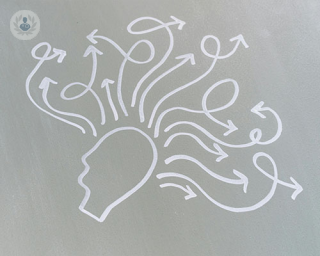
Por Dr Mohan Rathnaiah
05.11.24
Psiquiatría
Psychiatric treatment of compulsive/hyperactive thinking
Compulsive or hyperactive thinking is often characterised by repetitive, uncontrollable thoughts that can overwhelm a person's mental space. These thought patterns are commonly associated with conditions such as obsessive-compulsive disorder (OCD), anxiety disorders, and attention-deficit hyperactivity disorder (ADHD). Psychiatric treatment aims to address the underlying causes of these thought patterns and help patients regain control over their mental state.

















